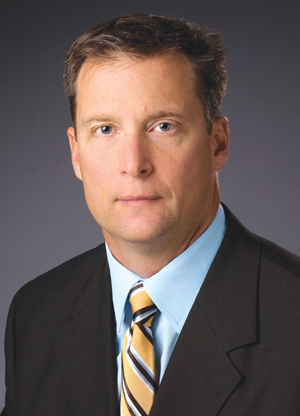OTTAWA - A “paperless” trial that ended recently with an $11.4-million judgment against four software executives in Ottawa has broken new ground in Ontario.

But lawyers say the province is well behind other jurisdictions when it comes to electronic courts.
Superior Court Justice Thomas Granger awarded the substantial damages last month after 295 days of hearings that spanned three years with 2,893 exhibits and a total of 70,000 pages, all of which were filed, viewed, and argued while in an electronic format.
Fittingly, the four executives of a successful defence industry firm Granger found liable for breaching fiduciary trust were themselves technology brains.
In the case that began with a statement of claim in 1996, Granger found the executives had resigned that year without proper notice to their firm, GasTOPS Ltd., and went on to use privileged access to confidential software information, as well as commercial information about clients and marketing plans, to duplicate GasTOPS’ trade secrets and lure away its customers.
The four founded a new firm, Mxi Technologies Ltd., and began approaching GasTOPS’ clients - including the U.S. navy - to convince them they had the Canadian technology the clients were seeking after successful past dealings with GasTOPS.
GasTOPS had developed the leading-edge computer software systems and databases over two decades. The technology was used to conduct sophisticated analysis of gas-turbine engines for the Canadian Forces CF-18 fighter jets as well as Sea King naval helicopters.
The programs helped to detect damage and prevent malfunctions before catastrophic failure.
There were other applications, and the client list that eventually shifted from GasTOPS to Mxi included the Kuwaiti air force, the Canadian Department of Transport, and the RCMP.
The defendants, Bradley Forsyth, Douglas Brouse, Jeffrey Cass, and Robert Vandenberg, had all helped to develop the program for GasTOPS. From the evidence, it was clear they didn’t leave the company on good terms, giving only two weeks’ notice each.
“Former employees cannot compete unfairly after leaving their employment,” Granger, himself a computer-software and electronic-courtroom enthusiast, wrote.
Granger said Forsyth and Brouse, the first to leave, should have given GasTOPS 10 months’ notice and added that “as a result of their failure to provide reasonable notice, the defendants are responsible for the damages resulting from that failure.”
Other findings included the fact that all the defendants were “well aware at all material times that the business opportunities GasTOPS was pursuing and its proposals to potential customers [were] confidential business information.”
One of the lawyers for the defendants, Stephen Appotive of Hamilton Appotive LLP in Ottawa, tells
Law Times the defendants will appeal Granger’s ruling, a development a lawyer for GasTOPS was expecting.
John Yach, a member of the GasTOPS legal team, says there were several key aspects of the case.
For one thing, Granger’s order that the defendants pay 10 years’ worth of lost profits to GasTOPS is well above past findings that set the range within a year or two.
Another aspect, discovered through a search of Mxi’s backup computer records, was the finding “that the defendants purposely failed to disclose key documents that they should have disclosed as part of the discovery process,” Yach, with Shields & Hunt in Ottawa, tells
Law Times.He notes, however, that the ability to conduct such an exhaustive trial, with all its evidence and complex technological aspects, was significant in a different way.
“It’s scary to think how long the trial might have been if we hadn’t used an electronic courtroom,” says Yach, adding that Granger, who normally sits in London, Ont., was perfectly suited for the ordeal because of his own interest in promoting paperless trials and electronic documentation.
“We owe him a debt of gratitude because no one expected, ever, [that] it was going to last as long as it did. He would come up here in the dead of winter, living out of a hotel room.”
Electronic versions of briefs, motions, transcripts, and evidence allowed Granger and lawyers on both sides, as well as witnesses watching digital screens, to view key documents at the touch of a finger.
Ottawa litigator Tom Conway agrees the case is significant given moves in Ontario courtrooms toward greater use of electronic documents.
But both he and Yach say the province is far behind the United States when it comes to electronic courtrooms. There, lawyers and the public can access court documents even though the filings are hundreds or thousands of kilometres away.
“In the U.S., they are much more advanced than we are, as they are in most things,” Conway tells
Law Times, adding he is involved in a case where the pile of documents makes the GasTOPS litigation look small in comparison.

 But lawyers say the province is well behind other jurisdictions when it comes to electronic courts.
But lawyers say the province is well behind other jurisdictions when it comes to electronic courts.